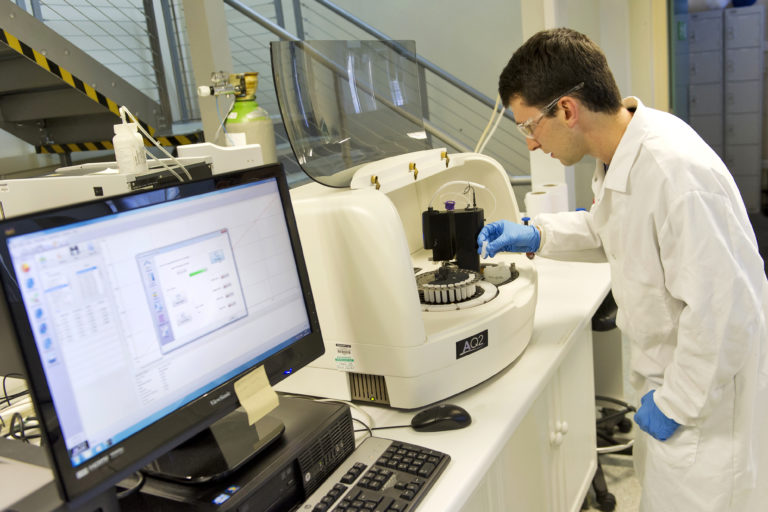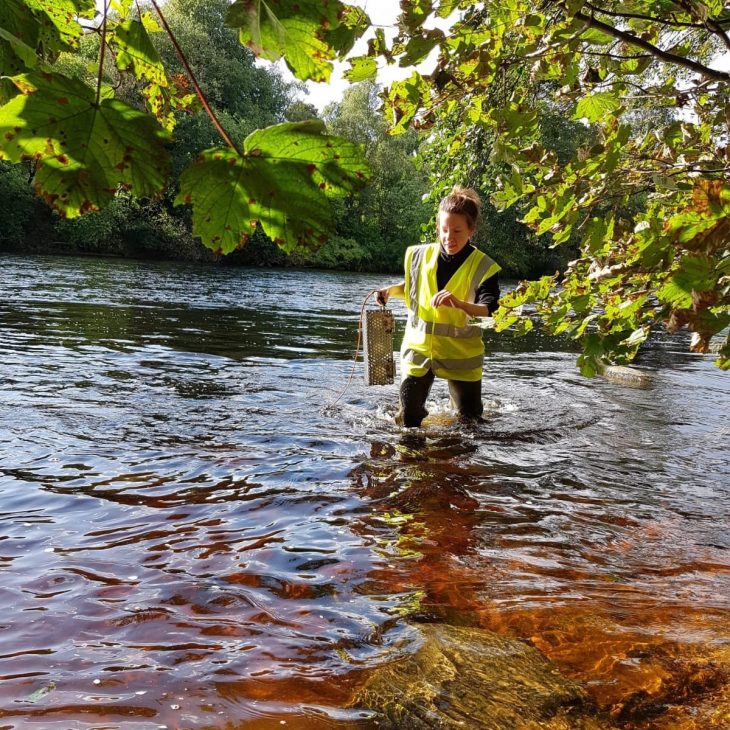The ERI is located within the heart of the relatively pristine Highlands of Scotland – and as elsewhere, the environment, ecosystems and species of the region (and the ecological services they provide) are susceptible to pollution. A myriad and ever-increasing range of anthropogenic contaminants are now present in our environment – even in one as attractive as the Highlands; and, additional stressors (such as rapid climate change) are posing cumulative threats to biodiversity.
At the ERI, we will engage in a range of highly interdisciplinary research to quantify the risks to and impacts of contaminants and stressors on biota at the molecular, individual and population level. Using our state-of-the-art analytical chemistry facilities, we will promote a greater understanding of contaminants (i.e., pharmaceuticals, heavy metals, plastics) and their fate and behaviour, and develop new solutions and techniques to prevent and mitigate against negative impacts. In this context, our research will sit firmly within the wider global “One Health” agenda, which recognises that the health and wellbeing of humans, biota, and the environment are all closely connected and interdependent.

We will undertake research that is highly relevant within the rural Highlands and Islands region, but also conduct a significant proportion of our research activity internationally. We will work in partnership to support and encourage knowledge exchange, and the development of new products and services within economically important sectors in our region and beyond (i.e., aquaculture, energy, food and drink, healthcare).
Our team will work to promote globally sustainable solutions to complex problems, engaging with a diverse range of stakeholders and collaborators to apply fundamental and world leading applied research to real world challenges. We will use a combination of environmental monitoring, cutting edge analytical chemistry and advanced spatial/temporal modelling to inform and affect policy at local, national and international scales.
Whilst our overarching focus will regard environmental contamination, impacts on ecological health, and mitigating against these impacts – we will also target several more specific Strategic Priorities in coming years (several of which clearly overlap with other research themes at the ERI):
Sustainable wastewater treatment – developing new approaches to reduce contaminants entering surface waters, encompassing: novel wastewater treatment solutions, the repurposing of waste material for use in water remediation, engineered adsorption technology, low-cost/sustainable approaches (including constructed wetlands) and resource capture, recovery and recycling.
Food safety and nutrition – quantifying food safety, quality and nutritional value – especially of less mainstream but regionally important human foods (i.e., game meat, seaweed, shellfish); assessing how variation in environment/habitat/processing impacts quality (spatially and temporally) and developing new ways to sustainably gain ‘added value’ from available resources.
Co-stressors – seeking to understand how additional stressors (such as climate change, disease, dietary intake, etc.), interact alongside and in addition to chemical contaminants – to impact and pose heightened risks to wildlife and humans alike. Further encompassing the broader “One Health” approach and agenda.
Novel monitoring approaches – developing new approaches to monitor environmental contamination and change – and their impacts on ecological health; including new passive water sampling approaches, novel ‘biomonitoring’ techniques (i.e., to assess ‘emerging risks’ such as from antimicrobial resistance), eDNA metabarcoding and remote sensing.

